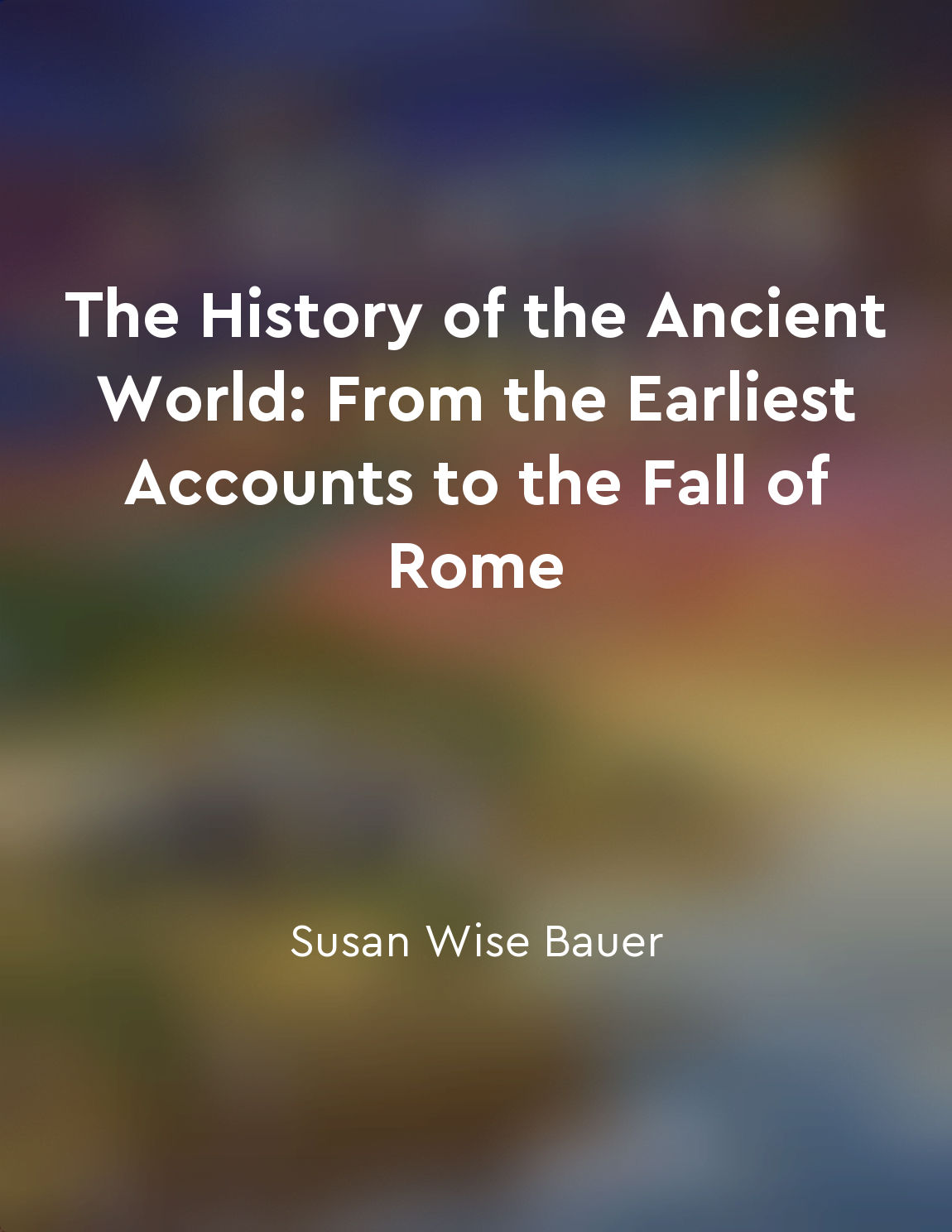Audio available in app
Discuss the transformation of the Roman Republic into an empire from "summary" of The History of the Ancient World: From the Earliest Accounts to the Fall of Rome by Susan Wise Bauer
The transformation of the Roman Republic into an empire was a gradual process that took place over several centuries. It was not a sudden shift, but rather a series of events and developments that gradually changed the political structure of Rome. One of the key factors in the transformation of the Roman Republic into an empire was the expansion of Roman territory through conquest. As Rome conquered more and more territories, it became increasingly difficult to govern them effectively within the framework of the republican system. This led to the need for a more centralized form of government that could effectively administer and control the vast empire. Another factor that contributed to the transformation of the Roman Republic into an empire was the growing divide between the wealthy aristocracy and the common people. The aristocracy became increasingly powerful and wealthy, while the common people struggled with poverty and disenfranchisement. This social unrest created opportunities for ambitious leaders to exploit and manipulate the political system for their own gain. One of the most significant developments in the transformation of the Roman Republic into an empire was the rise of powerful military leaders such as Julius Caesar and Octavian (later known as Augustus). These leaders used their military strength and popular support to seize power and establish themselves as dictators or emperors. The transition from republic to empire was marked by a series of civil wars and power struggles as competing factions vied for control of Rome. Eventually, Augustus emerged victorious and established himself as the first Roman emperor. He instituted a series of reforms that effectively centralized power in the hands of the emperor and transformed Rome into a monarchy in all but name.- The transformation of the Roman Republic into an empire was a complex and multifaceted process that involved political, social, and military developments. The rise of powerful military leaders, the expansion of Roman territory, and the growing divide between the aristocracy and the common people all played a role in shaping the transition from republic to empire.


